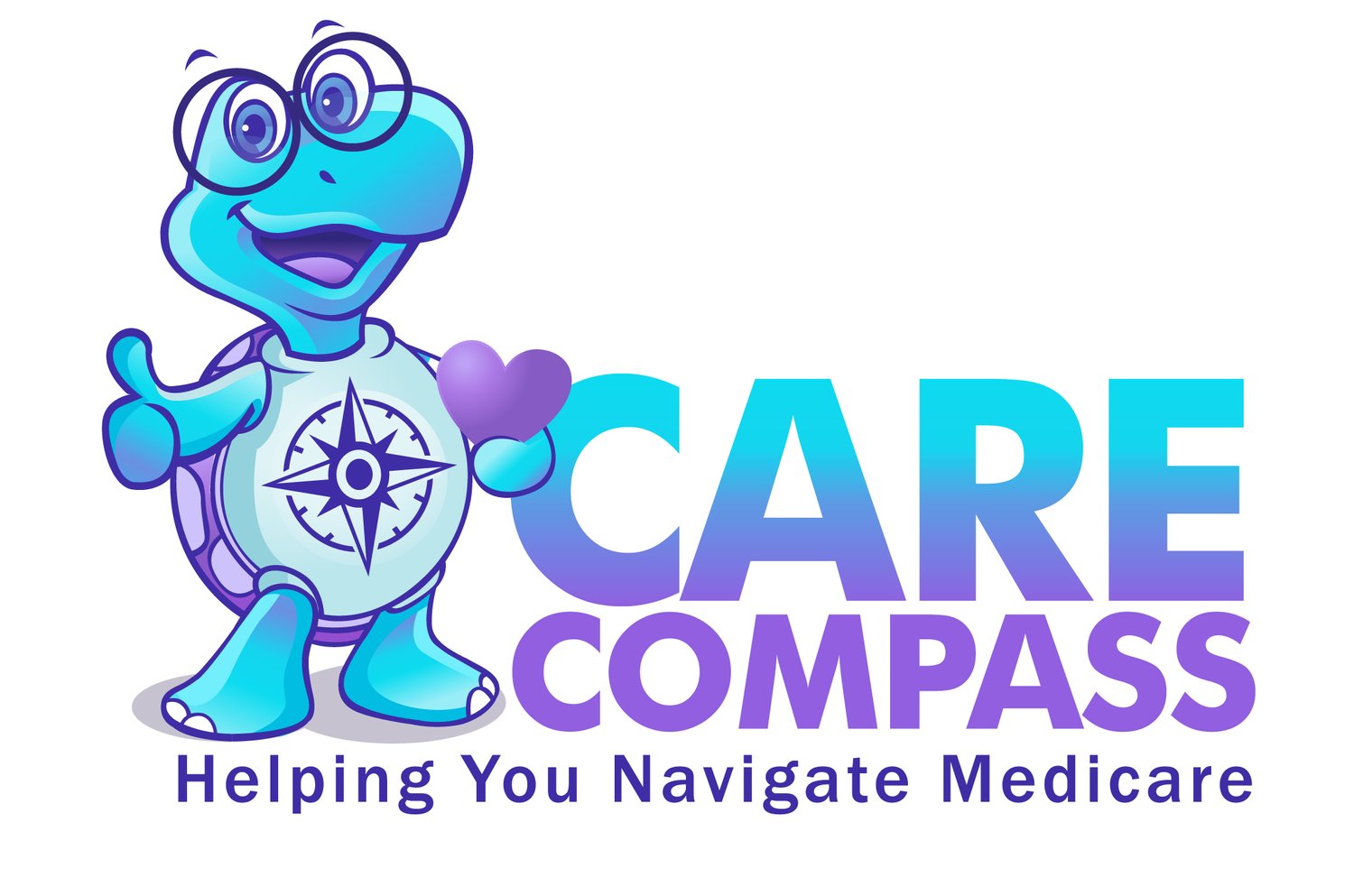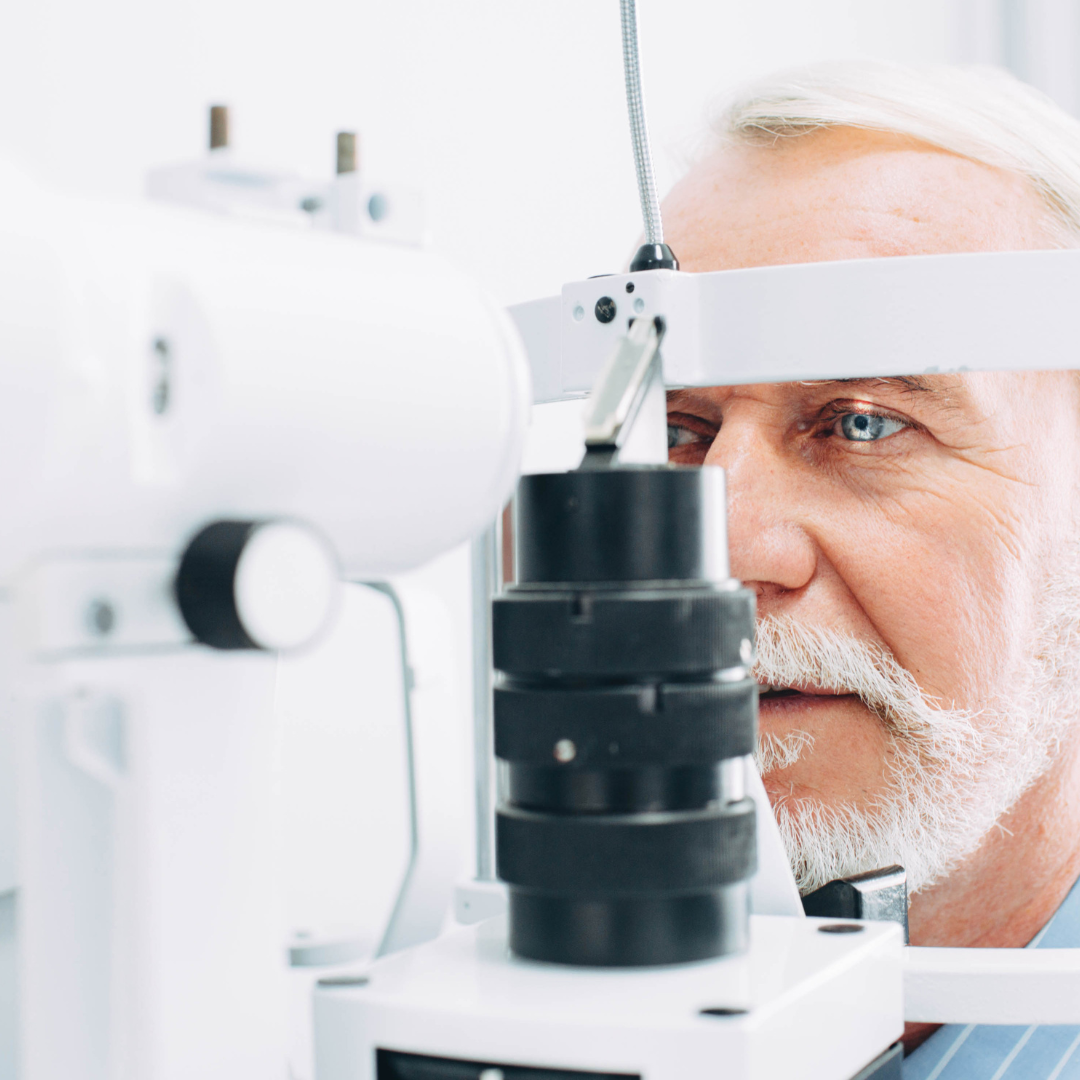Beyond the Prescription: Why Eye Exams are Crucial for Seniors
In August, we celebrate National Eye Exam Month which serves as a friendly reminder that getting your eyes checked should be an important part of your annual healthcare routine. While eye exams are essential at any age, they become even more critical as we get older and the risk for eye conditions such as glaucoma and age-related macular degeneration (AMD) increase. Regular eye exams are crucial for seniors not just to correct vision problems, but also to detect and manage eye conditions that can affect overall health and well-being.
We caught up with Board Certified Optometrist Dr. Michelle Barnes, owner of Michelle Barnes Optometry in Hollidaysburg, Pennsylvania, to learn more about the importance of eye exams for seniors.
Common Eye Conditions that Affect Seniors
Our eyes undergo many anatomical changes as we get older. As a result, seniors are often at higher risk for developing age-related eye conditions, which, if left untreated, can lead to vision loss. Common eye conditions that affect seniors are:
Age-related macular degeneration (AMD), which is one of the leading causes of vision loss in people over 65
Glaucoma, which is often referred to as the “silent thief of sight” because it can progress without noticeable symptoms until significant damage has occurred
Cataracts, which cause the lens of the eye to become cloudy
Diabetic Retinopathy, a condition where high blood sugar levels damage the blood vessels in the retina
According to Dr. Barnes, while many vision issues like near-sightedness usually happen in children and young people, more serious conditions like cataracts, corneal dystrophies, and retinal disease are more likely to develop as we get older.
Good Vision is Much More than 20/20
Many people believe that the refraction portion of an eye exam, which determines a patient’s prescription for glasses or contact lenses, is all that is done at an eye exam, but that’s not the case. Dr. Barnes indicated that there are other aspects of an eye exam that are vital to ensuring healthy eyes:
“Good vision is much more than 20/20!” This is our motto at Michelle Barnes Optometry. Even if you don’t need prescription eyeglasses or contact lenses, you should have regular eye examinations to ensure your eye health. Many eye diseases don’t have symptoms until damage has already begun, and when detected early they can be treated and managed without loss of eyesight. Your optometrist can determine the status of your eye health and, in some cases, they can detect systemic health conditions such as high blood pressure by detecting changes in the eyes. During a thorough examination you will be screened for ocular diseases such as glaucoma and macular degeneration. Many times, there are visible changes an eye doctor can identify long before you would have actual symptoms. Early detection can prevent permanent loss of vision.
Check Yearly to See Clearly
So how often should seniors get a comprehensive eye exam?
According to Dr. Barnes, the American Optometric Association recommends that ALL adults have a yearly eye examination. At a minimum, every two years. For seniors with certain eye or systemic health issues (such as diabetes), your optometrist might even recommend coming more frequently.
Does Medicare Cover Eye Exams?
Original Medicare (Part A and Part B) does not cover routine eye exams or eyeglasses/contact lenses except after cataract surgery. However, Part B of Original Medicare does cover eye exams for diabetic neuropathy once each year if you have diabetes. It also covers glaucoma screenings once per year if you’re at high risk for glaucoma.
Although the coverage for eye exams is limited under Original Medicare, many Medicare Advantage Plans and stand-alone vision plans can provide this coverage for you.
Tips for Maintaining Good Eye Health
Dr. Barnes suggests following these tips in order to maintain healthy eyes:
1. Keep moving! Exercise regularly and maintain a healthy diet.
2. Protect your precious eyes! Wear safety eyewear for contact sports (such as pickleball) and when recommended for work or DIY home improvement projects.
3. Don’t smoke! Smokers are twice as likely to develop wet macular degeneration, a condition that can cause sudden and permanent loss of vision.
4. Check yearly to see clearly! Schedule annual eye exams!
Dr. Barnes is the owner and founder of Michelle Barnes OD PC, serving Hollidaysburg, and the surrounding areas. Her practice is currently accepting new patients. To schedule an appointment with Dr. Barnes, call (814) 942-7184.
Do you need Medicare assistance in the Altoona, PA area? Care Compass is an independent insurance agency that specializes in helping clients with Medicare. Our services are offered at NO COST TO YOU! Care Compass is proudly owned and operated in Duncansville, Pennsylvania and serves the residents of Blair County and the surrounding region. If you will be Medicare-eligible soon or you are already on Medicare and need assistance, contact Care Compass today!
Care Compass is an independent insurance agency that helps seniors navigate the complexities of Medicare and other Senior Products. Our services are offered at NO COST! Care Compass is proudly owned and operated in Blair County, Pennsylvania. We provide Medicare insurance assistance to the residents of Altoona, Hollidaysburg, Duncansville and the surrounding region. If you need assistance with Medicare, contact Care Compass today!





